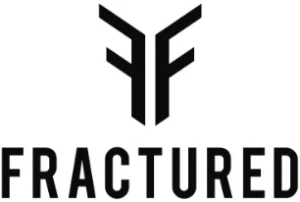FRACTURED EDIT
How to Trust a Brand

In an era where “sustainability” is often used as a marketing buzzword, discerning genuine commitment from mere greenwashing is crucial. At Fractured, we believe that true sustainability in fashion transcends labels and delves deep into every facet of a brand’s operations.
The Pillars of Genuine Sustainability
-
Ethical Production Practices
True sustainability begins with people. Brands must ensure fair wages, safe working conditions, and respect for workers’ rights throughout their supply chains. Certifications like Fair Trade and B Corp help validate these practices.
-
Eco-Friendly Materials
Using organic, biodegradable, or recycled materials minimizes environmental impact. Look for third-party verification like GOTS (Global Organic Textile Standard) and OEKO-TEX Standard 100, which confirm the safety and sustainability of textiles.
-
Transparent Supply Chains
Transparency fosters trust. Brands should openly share where and how their products are made. Tools like the Higg Index can help measure and communicate environmental and social impacts in a standardised way.
-
Circularity and Waste Reduction
Designing for longevity, reducing excess, and embracing circular business models are critical. Many innovative brands are going beyond recycling – they’re upcycling, sourcing used garments or waste materials and transforming them into entirely new, one-of-a-kind pieces. This not only diverts textile waste from landfills but also brings artistry and uniqueness back into fashion.
-
Verified Sustainability Claims With or Without Certification
Independent certifications like GOTS, Fair Trade, OEKO-TEX, and B Corp provide valuable assurance and structure. But it’s important to recognize that certifications can be costly and resource-intensive – particularly for small or independent brands. There are many responsible brands doing the right things – sourcing ethically, minimizing waste, treating workers fairly – without yet holding formal certification. That doesn’t make their efforts less valid. In fact, many are prioritizing impact first, and seeking certification when feasible. The key is transparency and a willingness to share details about processes, challenges, and goals.
Fractured’s Commitment
At Fractured, we don’t just feature brands that talk the talk – we partner with those working to build fashion differently.
Every brand in our ecosystem is currently evaluated through a mix of in-depth online research and direct conversations with founders. We look at sourcing, materials, labour practices, and ethos – not just paperwork or certifications.
But we know that sustainability isn’t black and white – and our process will never be perfect. That’s why we’re committed to refining how we assess impact: making our vetting process more structured, more transparent, and increasingly measurable over time.
Because sustainability isn’t an add-on. It’s a mindset. A practice. A promise.
Your Role as a Conscious Consumer
Whether you’re a customer or a brand partner, you have a role to play:
- Ask better questions.
- Look beyond labels.
- Value the effort behind the product, not just the product itself.
The future of fashion isn’t fast – it’s thoughtful, measured, and regenerative.
Sources:
- Clean Clothes Campaign
- Fashion Revolution – Transparency Index
- Textile Exchange – Preferred Fibre & Materials Report
- WRAP (Waste and Resources Action Programme) Clothing Waste Statistics
- Ellen MacArthur Foundation, A New Textiles Economy






